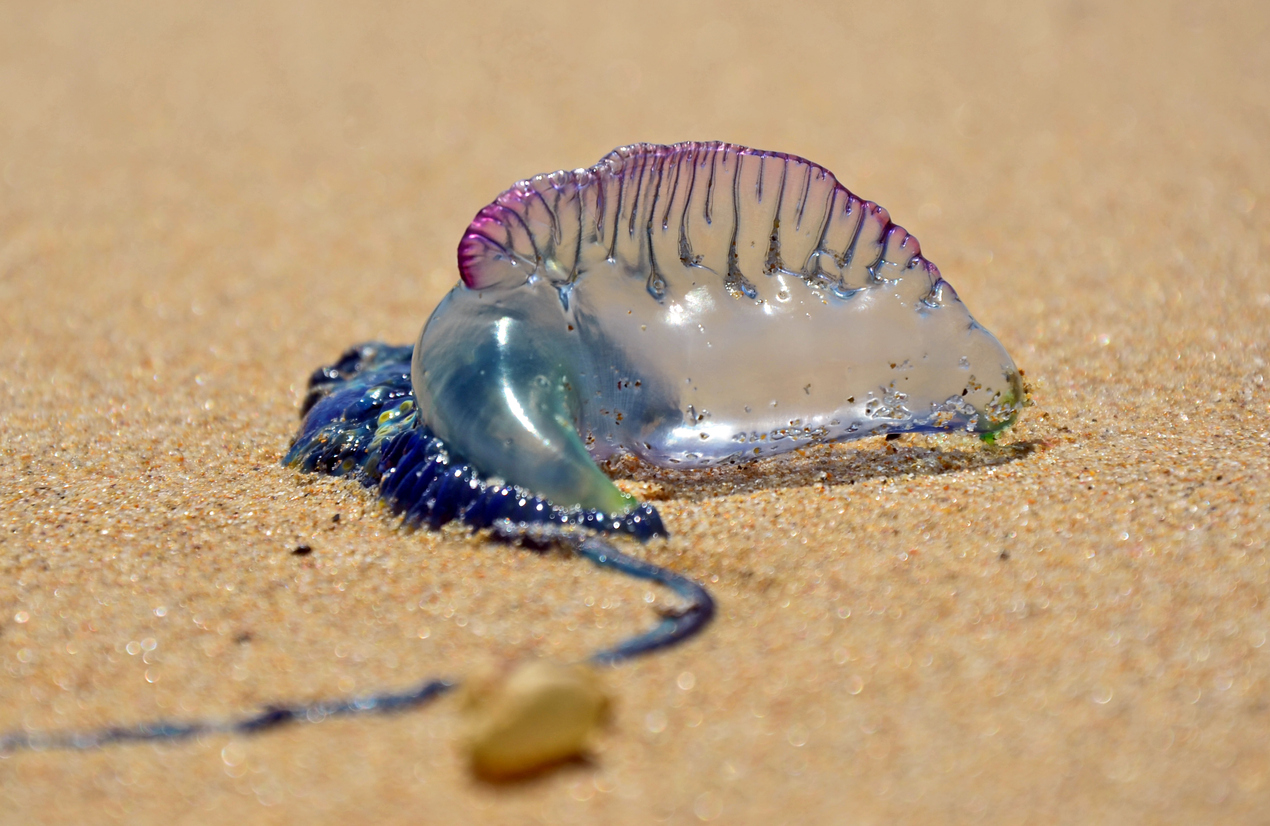Jellyfish stung 13,000 people on Australia's east coast in the past week


A free daily email with the biggest news stories of the day – and the best features from TheWeek.com
You are now subscribed
Your newsletter sign-up was successful
Just when you thought it was safe to go to Australia.
A "wall" of bluebottle jellyfish is washing up on the country's eastern coast, local officials say, forcing the state of Queensland to close several beaches. They stung 3,595 people last weekend and 13,000 in the past week in Queensland alone, and some scientists think climate change is to blame, The Washington Post reports.
From Dec. 1 to Jan. 7, some 22,282 people were treated for bluebottle stings in Queensland, per The Guardian. The state had 6,831 stings in that same time last year, and the entire country usually sees 25,000 to 45,000 stings a year, the Australian Marine Stinger Advisory Service says. It all adds up to what local officials call an "epidemic."
The Week
Escape your echo chamber. Get the facts behind the news, plus analysis from multiple perspectives.

Sign up for The Week's Free Newsletters
From our morning news briefing to a weekly Good News Newsletter, get the best of The Week delivered directly to your inbox.
From our morning news briefing to a weekly Good News Newsletter, get the best of The Week delivered directly to your inbox.
The bluebottles usually end up coming to shore in massive throngs, with Surf Life Saving Queensland reporting approaching pods via Twitter. "Strong and unusual winds" are pushing the squads toward Queensland, the Post writes, and that's not the only climate-related explanation. "Jellyfish are stimulated by just about any change to the ecosystem," a researcher tells the Post, suggesting Australia's warming waters and pollution contributed to the growing jellyfish "bloom."
Bluebottle stings are usually treated with ice or hot water, but nine people have been hospitalized with stings in the past month, per CNN. Rarer species are typically more dangerous, and there's been an uptick in the number of their stings as well.
A free daily email with the biggest news stories of the day – and the best features from TheWeek.com
Kathryn is a graduate of Syracuse University, with degrees in magazine journalism and information technology, along with hours to earn another degree after working at SU's independent paper The Daily Orange. She's currently recovering from a horse addiction while living in New York City, and likes to share her extremely dry sense of humor on Twitter.
-
 The environmental cost of GLP-1s
The environmental cost of GLP-1sThe explainer Producing the drugs is a dirty process
-
 Greenland’s capital becomes ground zero for the country’s diplomatic straits
Greenland’s capital becomes ground zero for the country’s diplomatic straitsIN THE SPOTLIGHT A flurry of new consular activity in Nuuk shows how important Greenland has become to Europeans’ anxiety about American imperialism
-
 ‘This is something that happens all too often’
‘This is something that happens all too often’Instant Opinion Opinion, comment and editorials of the day
-
 Nobody seems surprised Wagner's Prigozhin died under suspicious circumstances
Nobody seems surprised Wagner's Prigozhin died under suspicious circumstancesSpeed Read
-
 Western mountain climbers allegedly left Pakistani porter to die on K2
Western mountain climbers allegedly left Pakistani porter to die on K2Speed Read
-
 'Circular saw blades' divide controversial Rio Grande buoys installed by Texas governor
'Circular saw blades' divide controversial Rio Grande buoys installed by Texas governorSpeed Read
-
 Los Angeles city workers stage 1-day walkout over labor conditions
Los Angeles city workers stage 1-day walkout over labor conditionsSpeed Read
-
 Mega Millions jackpot climbs to an estimated $1.55 billion
Mega Millions jackpot climbs to an estimated $1.55 billionSpeed Read
-
 Bangladesh dealing with worst dengue fever outbreak on record
Bangladesh dealing with worst dengue fever outbreak on recordSpeed Read
-
 Glacial outburst flooding in Juneau destroys homes
Glacial outburst flooding in Juneau destroys homesSpeed Read
-
 Scotland seeking 'monster hunters' to search for fabled Loch Ness creature
Scotland seeking 'monster hunters' to search for fabled Loch Ness creatureSpeed Read
